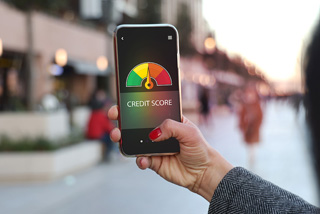
6 essential credit report terms to know

How to spot a credit repair scam

January 30, 2025
Having a good credit score by the time you graduate will put you in a solid position for real-world financial responsibilities. Big, future responsibilities such as renting an apartment, buying a car or purchasing your first home. Here are 10 tips to lay the foundation for a healthy credit score.
The U.S. Consumer Financial Protection Bureau defines a credit score as a number that is used to predict how likely you are to pay back a loan on time. Credit scores are used by companies to make decisions such as whether to offer you a mortgage or a credit card. A FICO® score is the most well-known brand of credit score. Credit scores are also used to determine the interest rate you receive on a loan or credit card, as well as the credit limit.
Have questions about establishing credit? Make an appointment with a banker or find your nearest campus branch.
Related content


